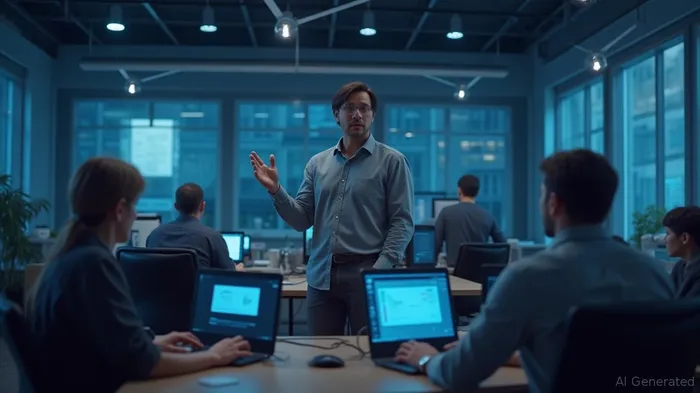OpenAI's New Tools Aim to Challenge Microsoft Office, Google Workspace
OpenAI is reportedly developing a suite of collaborative tools that could directly challenge the dominance of MicrosoftMSFT-- Office and Google Workspace in the enterprise productivity market. The company is said to be working on document collaboration and chat communication features, which are designed to compete with the existing offerings from Microsoft and Google. This move is part of a broader strategy to position ChatGPT as a "super-intelligent personal work assistant," a vision outlined by the company's leadership.
The development of these collaborative tools has been in the works for nearly a year, with high-level discussions and initial design proposals presented by product managers. However, the progress has been hindered by resource constraints and competing priorities within the company. The recent launch of the Canvas feature, which allows users to draft documents and code more easily with AI assistance, is seen as a preliminary step towards the full implementation of these collaborative functions.
In addition to collaboration, OpenAI is also exploring other productivity features such as file storageDTST--. The company has developed a note-taking tool that can record calls or meetings and import notes into Canvas. However, the lack of basic productivity functions like file storage in ChatGPT limits the tool's usefulness. The company's financial projections indicate that by 2030, enterprise-level ChatGPT subscription revenue is expected to reach approximately 150 billion, highlighting the significant commercial potential of the productivity tools market.
The introduction of these new features by OpenAI is likely to disrupt the current market dynamics, as enterprises typically prefer to purchase comprehensive productivity suites like Microsoft Office and Google Workspace, which already include AI assistant functionalities. OpenAI's collaborative tools and file storage capabilities could make ChatGPT more attractive to enterprise clients, especially given its existing partnerships with companies like Moderna and T-Mobile. The company has also recently offered subscription discounts, which has reportedly caused discontent among Microsoft's sales teams, underscoring the intense competition between the two firms.
OpenAI's move into the productivity tools market could also pose a threat to Google's search engine market share, as ChatGPT's search capabilities have already begun to divert traffic away from Google. The potential launch of collaborative tools could further exacerbate this threat, as enterprises may increasingly rely on ChatGPT for both productivity and search needs.
The relationship between OpenAI and Microsoft, its largest shareholder and commercial partner, is also under scrutiny. The two companies have direct competition in areas such as AI assistants, programming tools, and API model access. If OpenAI continues to challenge Microsoft's core productivity suite business, their relationship could become even more strained. Reports suggest that OpenAI is currently seeking Microsoft's approval for a reorganization plan for its profitable division, which is responsible for ChatGPT. Both parties are reportedly trying to secure significant concessions during this process.

Stay ahead with the latest US stock market happenings.
Latest Articles
Stay ahead of the market.
Get curated U.S. market news, insights and key dates delivered to your inbox.

Comments
No comments yet